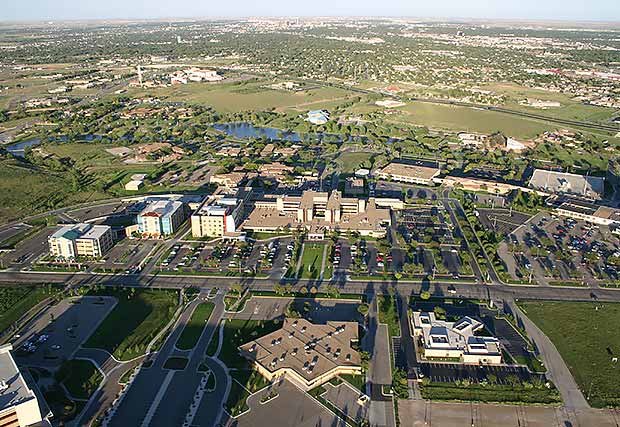The sight of a dark blue LIFESTAR helicopter flying overhead is familiar to residents across the Texas Panhandle. With more than two decades of providing medical transport, the LIFESTAR program continues to expand its capabilities and provide critical life-saving services to the region.
LIFESTAR operates helicopters from bases in Amarillo and Pampa within a 150-mile radius from each location. “That takes us into part of Kansas, southeast Colorado, eastern New Mexico and Oklahoma,” says Stewart Jackson, Director of LIFESTAR Services. That means mothers facing difficult child deliveries, people having a heart attack or stroke, and trauma patients are just a short flight from Northwest’s Level III Advanced Trauma facility.
LIFESTAR’s medical transport teams include a highly trained pilot, critical care nurse, critical care paramedic and providers specially trained to offer neonatal and high-risk obstetric care when needed.
Advances in Lifesaving Care
Recently, LIFESTAR became fully accredited to begin carrying blood and plasma, further enhancing the program’s capabilities. Blood loss is the second leading cause of death among trauma patients, according to the National Trauma Institute.
Patients needing emergency treatment for a classic STEMI heart attack (ST Segment Elevation Myocardial Infarction, the most serious type of heart attack) are also benefitting from an emergency protocol that can now be deployed onboard LIFESTAR helicopters. The STEMI protocol was developed by cardiologists at Northwest to treat cardiac patients with a clot-buster medication and prepare them to travel to Northwest for emergency care.
Faster Transport
Regional providers contact LIFESTAR through a dedicated emergency transfer center, which is equipped with satellite tracking and a real-time weather system to get crews to an accident or emergency as quickly as possible. “This decreases the amount of time a patient has to be out of a hospital environment,” Stewart says.
The transfer center also has streamlined the process of arranging for patient transport from regional and rural hospitals, reducing the time it takes to make these arrangements from several hours to about eight minutes.
AirMedCare Network®
Northwest’s LIFESTAR medical transport is part of the nationwide AirMedCare Network®, which offers memberships for families and individuals in the Texas Panhandle. Residents are encouraged to visit www.airmedcarenetwork.com and learn about the benefits of membership.
“A LIFESTAR helicopter can land directly at the site of an accident or the doors of the ER. It can meet up with an ambulance and get a patient right to the hospital,” says Stewart. “Our number-one goal is to provide the safest, fastest point-to-point care we can.”

